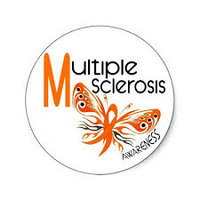
| (BPT) – Nurses wear many hats when it comes to talking to patients – providing education, advice and emotional support about even the most personal issues. For the 400,000 people in the U.S. who are living with multiple sclerosis (MS), that kind of personal attention can make all the difference. Diane Terry-Strelow has been a nurse for more than 30 years and says that all questions, big or small, are important to address when it comes to helping support those living with MS. |
| “MS is experienced differently by each and every patient I speak to,” says Terry-Strelow, a nurse with Genzyme’s MS One to OneTM program, which provides personalized support to program members living with MS, as well as their care partners. MS One to OneTM connects each member with his/her own nurse who has significant MS knowledge and is available by phone or online 24/7. “Patients enter the conversation at various points in their disease progression and with varying levels of knowledge about MS. For some, it is not easy to talk with friends and family about the disease. So it’s important that through MS One to OneTM, we provide support and encouragement to help them feel comfortable asking questions.” MS is a progressive, chronic disease that impacts a person’s central nervous system, which is made up of the brain, spinal cord and the optic nerves. MS prevents the nerves from transmitting messages between the brain and other parts of the body. This results in different and unpredictable physical and cognitive problems that can be mild, such as numbness in the limbs, or more severe, such as loss of vision or diminished mobility of the arms and legs. Some patients with MS experience attacks or flare-ups followed by remissions, while others experience a gradual worsening of symptoms. This unpredictability can be one of the most frustrating and stressful characteristics of the disease, says Terry-Strelow. This is why it is important that MS patients have a strong support network to help them reduce some of the physical and emotional burdens that they experience. Patients need to make the most of what they can control. “We can provide suggestions to help patients and their care partners overcome daily challenges of living with MS,” says Terry-Strelow. “For us nurses on call, there is no question too ‘unique’ or too ‘tough.’ From questions about learning how to be an engaged parent while battling fatigue, to managing personal hygiene issues, we have worked with patients to address all kinds of concerns.” Terry-Strelow also notes “We are not a replacement for important conversations that patients should have with their health care provider. We direct patients to talk with their health care provider regarding condition and treatment choices.” Aside from inquiries about treatment, one of the most common questions MS One to OneTM Nurses are asked is how those with MS can better manage feelings of exhaustion that are a common symptom of MS. “Often I find that patients have a hard time not only physically dealing with the fatigue, but in learning to explain this ‘invisible’ ailment to loved ones. How do you tell a friend, family member or coworker that simply standing for a few minutes or running a quick errand can cause you to need to rest?” explains Terry-Strelow. She says patients with these types of questions often request a direct call from an MS One to OneTM Nurse to their loved ones to explain the issue at hand and describe MS in terms that those who are not living with the disease can better understand. “The job of an MS One to OneTM Nurse is to provide support to those enrolled in the program,” says Terry-Strelow. “Don’t hold back with your questions – we’re just a phone call away. We are here to listen to all your highs and lows, questions and concerns, and offer advice when possible. Our door is always open.” To learn more about MS One to OneTM, visit www.MSOnetoOne.com, or call 1-855-MSOne2One (1-855-676-6326). The program is available online and through telephone support, and provides participants with information about MS as a disease, treatment and access to other helpful online and local resources. |











